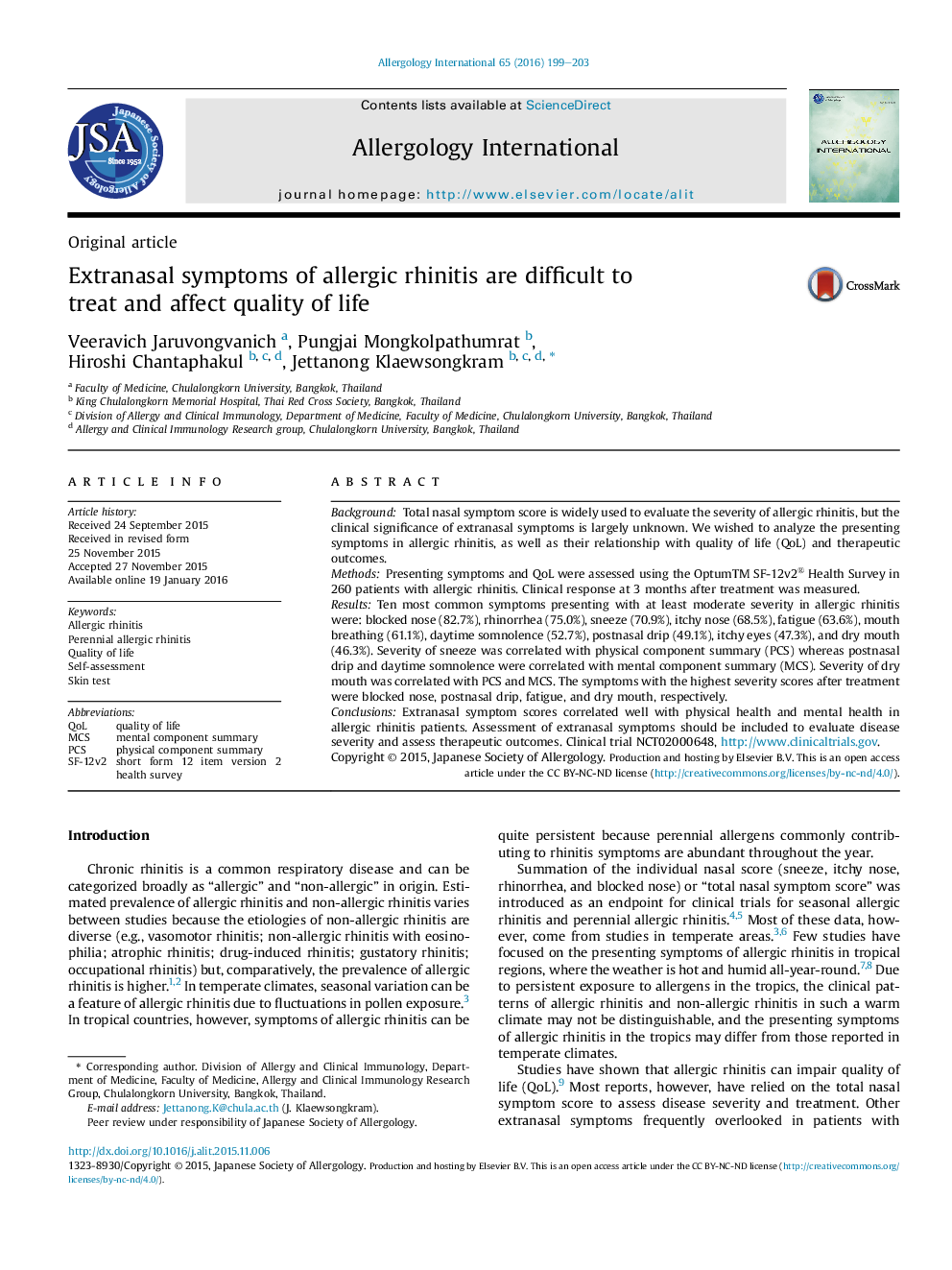| Article ID | Journal | Published Year | Pages | File Type |
|---|---|---|---|---|
| 3340483 | Allergology International | 2016 | 5 Pages |
BackgroundTotal nasal symptom score is widely used to evaluate the severity of allergic rhinitis, but the clinical significance of extranasal symptoms is largely unknown. We wished to analyze the presenting symptoms in allergic rhinitis, as well as their relationship with quality of life (QoL) and therapeutic outcomes.MethodsPresenting symptoms and QoL were assessed using the OptumTM SF-12v2® Health Survey in 260 patients with allergic rhinitis. Clinical response at 3 months after treatment was measured.ResultsTen most common symptoms presenting with at least moderate severity in allergic rhinitis were: blocked nose (82.7%), rhinorrhea (75.0%), sneeze (70.9%), itchy nose (68.5%), fatigue (63.6%), mouth breathing (61.1%), daytime somnolence (52.7%), postnasal drip (49.1%), itchy eyes (47.3%), and dry mouth (46.3%). Severity of sneeze was correlated with physical component summary (PCS) whereas postnasal drip and daytime somnolence were correlated with mental component summary (MCS). Severity of dry mouth was correlated with PCS and MCS. The symptoms with the highest severity scores after treatment were blocked nose, postnasal drip, fatigue, and dry mouth, respectively.ConclusionsExtranasal symptom scores correlated well with physical health and mental health in allergic rhinitis patients. Assessment of extranasal symptoms should be included to evaluate disease severity and assess therapeutic outcomes. Clinical trial NCT02000648, http://www.clinicaltrials.gov.
